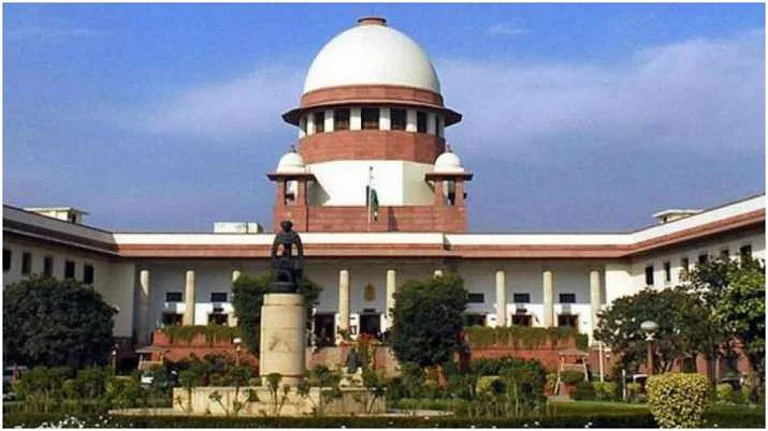The Supreme Court on Friday said the rehabilitation of homeless persons suffering from psychosocial disabilities was a sensitive issue and directed the Centre to take it up "very seriously".
The Centre informed a bench of Justices Vikram Nath and Sandeep Mehta that authorities were already deliberating the matter with meetings being underway.
The government counsel sought eight weeks' time to update the court on the progress achieved.
"You need to take it very seriously and as less time as possible," the bench said.
The apex court was hearing a plea filed by advocate Gaurav Kumar Bansal for directions to formulate and implement a policy for the homeless suffering from psychosocial disabilities.
The top court had in April sought responses from the Centre and others on the plea.
Psychosocial disabilities refers to the challenges people with mental health issues face due to discrimination, lack of support, among others.
On Friday, Bansal said the Centre had filed a counter affidavit in the matter.
The bench noted a brief reply was on record.
"We are already deliberating. Meetings are going on. I am praying for eight weeks time to place on record the progress so far," the Centre's counsel said.
Bansal said the homeless were "literally becoming football" and the police ought to do something for their rehabilitation under the law.
He said women were among several homeless persons and there was negativity from the police side in such cases, especially due to the lack of a proper rehabilitation programme.
"We are expecting response of the government on all these issues. Let them come back and then we will monitor it. We will try and take it to a logical end," the bench said.
When the Centre's counsel referred to the Mental Healthcare Act, 2017, the bench observed, "Acts are there. Where is the execution, where is the compliance".
The top court posted the matter on September 22.
The plea has sought directions to frame and implement the standard operating procedures for key stakeholders, including departments of law enforcement (police department) and medical health, to ensure the humane and effective handling of homeless persons with psychosocial disabilities.
The plea highlighted the issue faced by homeless persons with psychosocial disability who instead of being provided with appropriate care are often subjected to neglect, social isolation, and physical and sexual abuses.
"Despite existing legal and policy frameworks, including the Mental Healthcare Act, 2017 and National Mental Health Policy, 2014, respondents have failed to operationalise the provisions intended to protect and assist homeless individuals suffering from mental illness," it added.
The petitioner said the lack of a structured national policy on homelessness and mental illness has resulted in a "complete breakdown of the system, leaving thousands of individuals to fend for themselves" without access to medical care, shelter, or social entitlements.






















